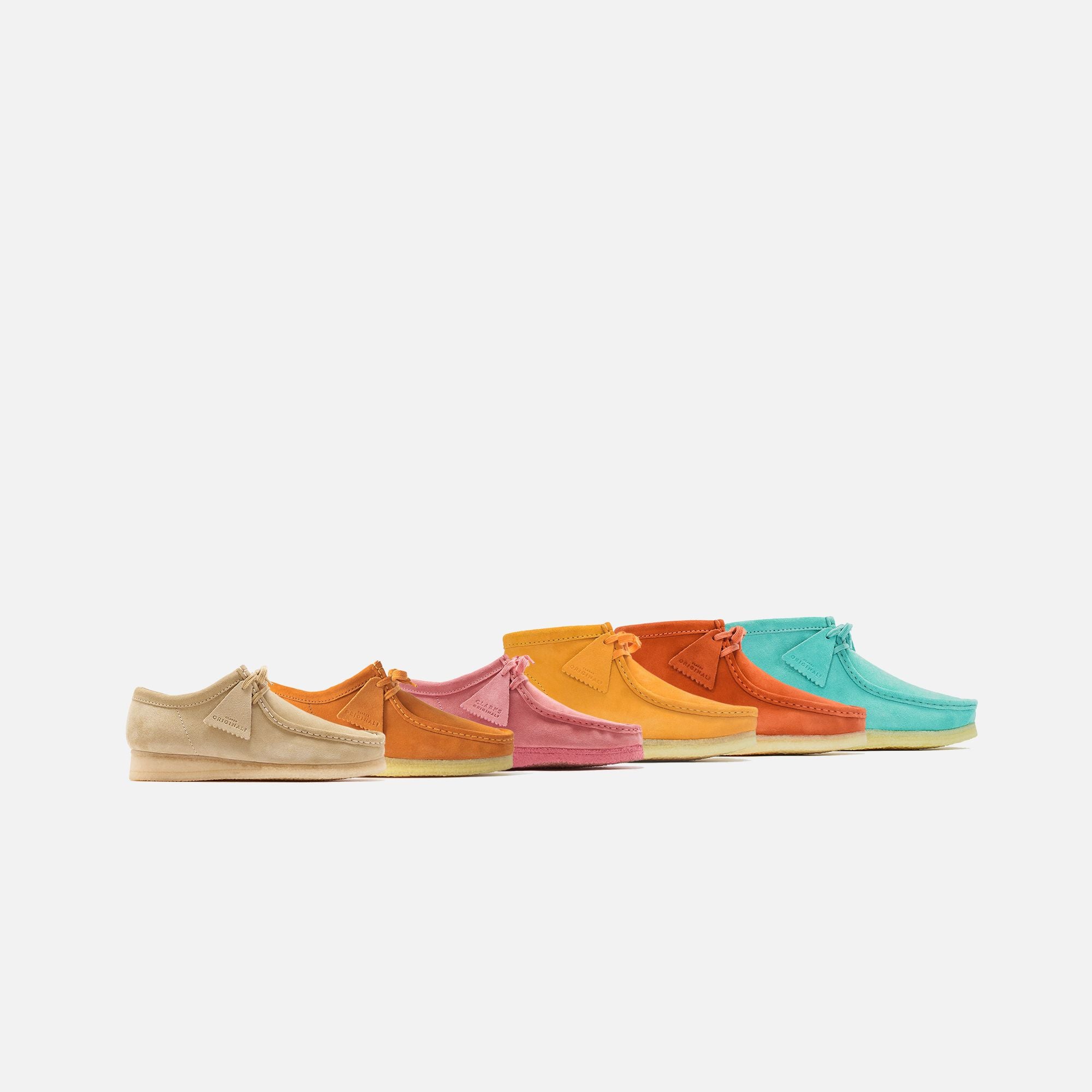Clarks history dates back nearly 200 years ago to 1825 in the small village in Somerset, England when James Clark was working at his brother, Cyrus' tannery where he made a slipper from sheepskin off-cuts. At the time it was ground-breaking; an innovative concept of craftsmanship that's remained at the heart of what they do.
Their sheepskin slipper, named the ‘Brown Petersburgh’, was a huge success. Within years of its unveiling, its unique design graced feet the length and breadth of the country and by 1842 sales were averaging 1000 pairs a month. There were no factories, so the brothers – now trading as C&J Clark Limited. They began outsourcing the work to other craftsmen to meet the growing demand. The workers collected the leather from the tannery, along with a pattern, took the whole lot home, and turned it into slippers. Although they tried to keep production as a family affair – everyone did their bit of cutting, sticking and sewing. Then, every Friday, all the finished footwear would be taken to Cyrus and James and in return, they would be rewarded with wages. The business was so successful that in 1851 the Clark brothers won two awards at the Great Exhibition, an event organized by Prince Albert to showcase the achievements of the British industry.
In 1863, a recession hit almost putting the Clark brothers out of business, luckily they returned to their Quaker roots and found financial support within their lifelong community securing them a loan. This loan held one major condition that would change the path of the company as they knew it, William, James Clarks' youngest son was to take the reins of the company instilling all power to him and Cyrus/James having to step down. Luckily, William was a visionary and took the company to new heights. He modernized the manufacturing process by implementing a factory system and investing in Singer sewing machines. Following all of this the C&J Clark Limited company was able to pay back their loan in full, and in 1883, they launched the first-ever shoe designed to fit the shape of a foot.
Moving into the 19th century, the company was now in control by John, Roger, and Alice Clark. In 1936, Clarks even produced footwear during the war known as the Clarks' mainstay boot. Clarks began using promotional advertising to better raise awareness of their products, as well as opening up 15 more factories in neighboring towns. In 1957, Clarks opened its first flagship store on London's Regent Street. Bringing us into the '50s-'60s, Clarks started to expand at home and abroad, increasing production, utilizing new materials, and new technologies. They introduced the Active Air technology which allowed more circulation of natural airflow to cushion and refresh the foot with every step. As well as bringing forth some of their most notable models - the Desert Boot which was created by Nathan Clark in 1950. In, 1967, the Wallabee was released to the public. The Wallabee was originally designed by a German company named Sioux and named The Grasshopper, luckily Clarks struck a deal allowing them to create their own rendition known as the Wallabee and manufactured in Ireland.
Continuing into the 1990s, Clarks was forced to get with the times and close all their UK based manufacturing and re-open their factories and entire production to Portugal. Along with a major change in production, Clarks continued its commitment to quality and created new marketing initiatives such as "Act your shoe size, not your age" and "Enjoy Every Step. Bringing it overseas to America, the popularity in Clarks can be attributed to the Jamaicans who immigrated here in the early 90s. Jamaican rudeboys were intensely into their music starting off with ska, then reggae, and moving into dancehall their uniform footwear of choice was the Desert Boot. Transitioning into a wider scale of popularity, it can be attributed to hip-hop culture and the infamous group known as the Wu-tang Clan as well as the Notorious B.I.G. More notably, Ghostface Killah of Wu-Tang Clan dubbed himself the Wallabee Champ and Wallabee Kingpin, while fellow New York rapper Foxy Brown famously rapped a bar about Wallabess on Nas' infamous album, It Was Written.
Moving into the 21st century, Clarks still houses its headquarters where they first started in Somerset, England. Selling tens of millions of pairs of Clarks a year, they continue their global growth and long-term popularity. Maintaining the original vision and passion of Cyrus and James Clark nearly three centuries later, Clarks now has an archive comprised of more than 22,000 styles of shoes that have sparked the revolution originally started in 1825.


